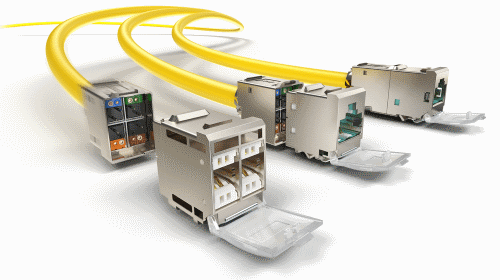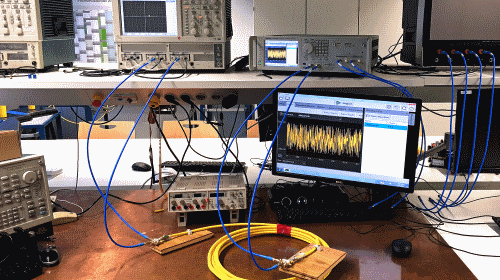
100 GBit/s are realistic ©Leoni AG
Leoni, the leading provider of cables and cable systems to the automotive sector and other industries, has proven that speeds of up to 100Gigabits per second are a realistic prospect in industrial data.
The megatrends of big data, cloud computing, Industry 4.0 and the internet of things are driving lasting change in the production and services landscape. Successful application of these technologies and concepts on the way towards the digital society will give Germany a long-term competitive edge as a business location.
The growing importance of the internet and the rapidly rising data volumes in computer centres and on storage area networks meanwhile call for new transmission technologies. Currently it is possible to carry no more than 10 Gigabits per second (Gbit/s) across a 100 metre copper data cable. An increase initially to 25 Gbit/s and 40 Gbit/s across a 30 metre copper data cable is part of an international standardisation project.
Together with its partners, Leoni’s Datacom business unit has now shown that data rates of 100 Gbit/s across 4-pair balanced copper cabling systems are not only technologically achievable, but also beneficial from economic aspects.

Measurement setup proves technology leap ©Leoni AG
Having provided the theoretical and practical evidence of 100 Gbit/s transmission across a balanced copper cable at least 30 metres long represents a great technological leap – and establishes a crucial basis for future information technology infrastructure. As part of this research project, Leoni developed data cable models for incorporation into the 100 Gbit/s transmission system.
The findings from the project will be the basis for developing new cable technology and advanced solutions for the next generation of Ethernet components. By participating in this cooperative project, Leoni demonstrated its technological edge and its ambition to innovate in the field of high-speed networks.
Working alongside Leoni on this project, which was subsidised by the Federal Ministry for Economic Affairs and Energy and scheduled to run for about two years, were Harting Electronics and Reutlingen University (Prof. Dr. Albrecht Oehler). The Harting technology group, based in Espelkamp, Westphalia, is a specialist in connector technology and networking solutions in the industrial and automation environments. Reutlingen University is among the most significant research facilities in the field of information technology and systems, and has extensive experience and qualifications.
The support for this cooperative project in the form of a subsidy from the Federal Government ensures that the research results are shared among the participating organisations. The scheme simultaneously serves to prepare for a new standardisation project on both the national and international levels.



